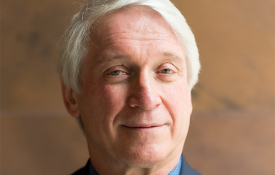-
The Best Job Interview Question, According to Angela Duckworth of “Grit” Fame
I once managed to land a job offer by casually referencing my admiration for Leonard Cohen during the interview. Also, they needed someone immediately and I was available. This is not the right way to hire anyone, but it’s not unusual, Angela Duckworth, the psychologist and author of Grit: The Power of Passion and Perseverance explained in a recent episode of No Stupid Questions, a smart new podcast by the crew behind the Freakonomics growing media empire. What social scientists call an unstructured interview—or “a random walk through topics” as Duckworth says—are common.
-

New Content From Perspectives on Psychological Science
A sample of articles on women in psychological science, behavior regulation, political slant of research, culture in the study of brain and development, updating beliefs and mental health, and the science of virtue.
-

Hinshaw Receives Sarnat Prize for Research on ADHD
APS Fellow Stephen P. Hinshaw received the 2020 Rhoda and Bernard Sarnat International Prize in Mental Health for his work on attention-deficit/hyperactivity disorder in children.
-

Online Research: From Funding to Data Collection
Three experts share their experiences and knowledge about conducting online research: from applying for funding to creating experiments and collecting data.
-
Facts v Feelings: How to Stop Our Emotions Misleading Us
By the spring of 2020, the high stakes involved in rigorous, timely and honest statistics had suddenly become all too clear. A new coronavirus was sweeping the world. Politicians had to make their most consequential decisions in decades, and fast. Many of those decisions depended on data detective work that epidemiologists, medical statisticians and economists were scrambling to conduct. Tens of millions of lives were potentially at risk. So were billions of people’s livelihoods. In early April, countries around the world were a couple of weeks into lockdown, global deaths passed 60,000, and it was far from clear how the story would unfold.
-
The Secret to Learning Any New Language May Be Your Motivation
If you want to effortlessly become an expert in a new language, you’re probably too late. That’s an opportunity largely reserved for children. And yet, adults regularly set out to study a second (or third, or fourth) language. They embark on the difficult journey for different reasons. Some want to gain better job prospects, others seek to socialize in new circles, while still others just want an educational way to entertain themselves. Research is revealing that these reasons may influence how far someone is able to travel toward proficiency. So programs intended to make that process easier and faster are tapping into the science of motivation to improve their methods.

